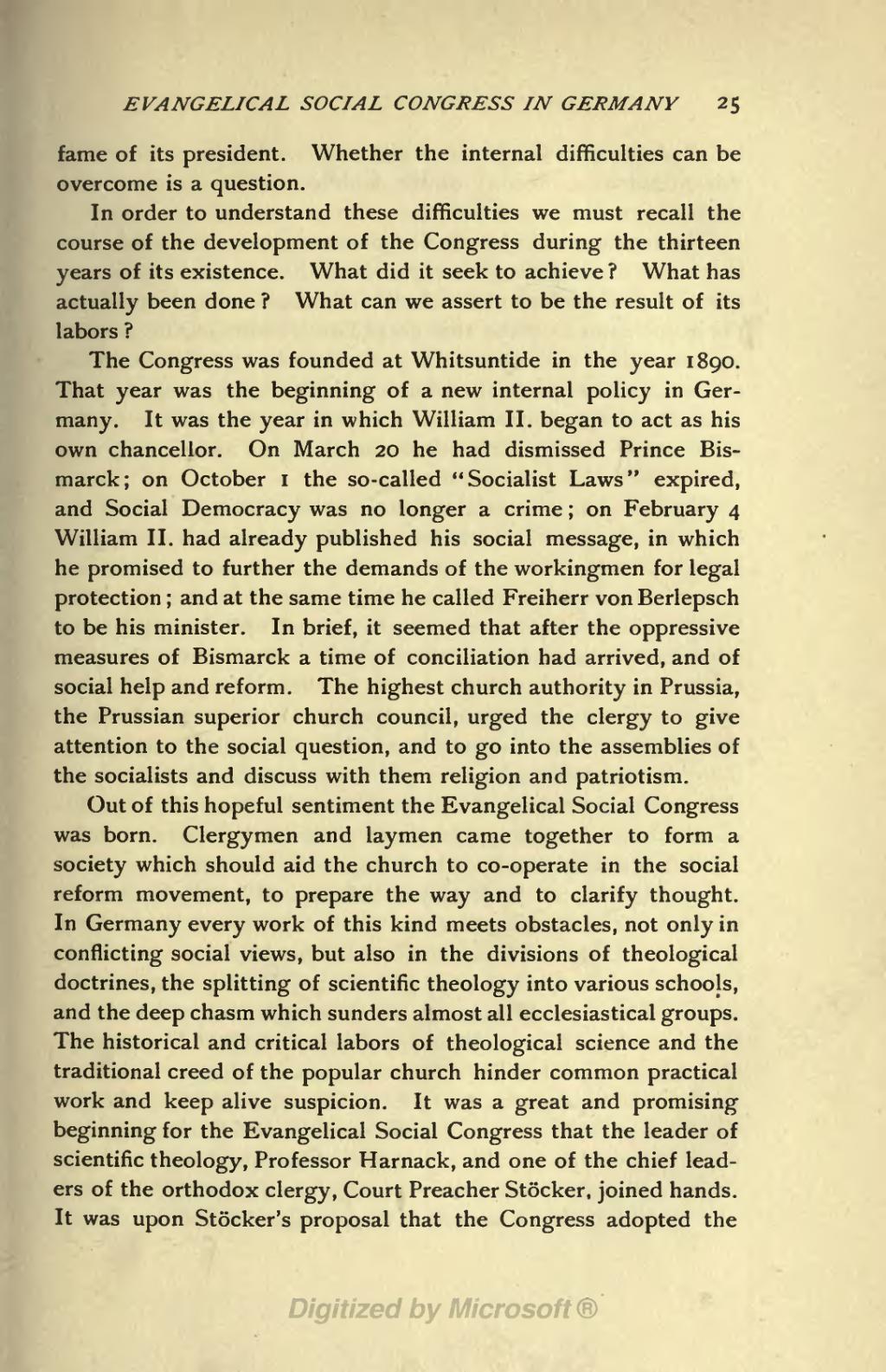EVANGELICAL SOCIAL CONGRESS IN GERMANY 2$
fame of its president. Whether the internal difficulties can be overcome is a question.
In order to understand these difficulties we must recall the course of the development of the Congress during the thirteen years of its existence. What did it seek to achieve ? What has actually been done ? What can we assert to be the result of its labors ?
The Congress was founded at Whitsuntide in the year 1890. That year was the beginning of a new internal policy in Ger- many. It was the year in which William II. began to act as his own chancellor. On March 20 he had dismissed Prince Bis- marck; on October I the so-called "Socialist Laws" expired, and Social Democracy was no longer a crime ; on February 4 William II. had already published his social message, in which he promised to further the demands of the workingmen for legal protection ; and at the same time he called Freiherr vonBerlepsch to be his minister. In brief, it seemed that after the oppressive measures of Bismarck a time of conciliation had arrived, and of social help and reform. The highest church authority in Prussia, the Prussian superior church council, urged the clergy to give attention to the social question, and to go into the assemblies of the socialists and discuss with them religion and patriotism.
Out of this hopeful sentiment the Evangelical Social Congress was born. Clergymen and laymen came together to form a society which should aid the church to co-operate in the social reform movement, to prepare the way and to clarify thought. In Germany every work of this kind meets obstacles, not only in conflicting social views, but also in the divisions of theological doctrines, the splitting of scientific theology into various schools, and the deep chasm which sunders almost all ecclesiastical groups. The historical and critical labors of theological science and the traditional creed of the popular church hinder common practical work and keep alive suspicion. It was a great and promising beginning for the Evangelical Social Congress that the leader of scientific theology, Professor Harnack, and one of the chief lead- ers of the orthodox clergy, Court Preacher Stocker, joined hands. It was upon Stocker's proposal that the Congress adopted the
